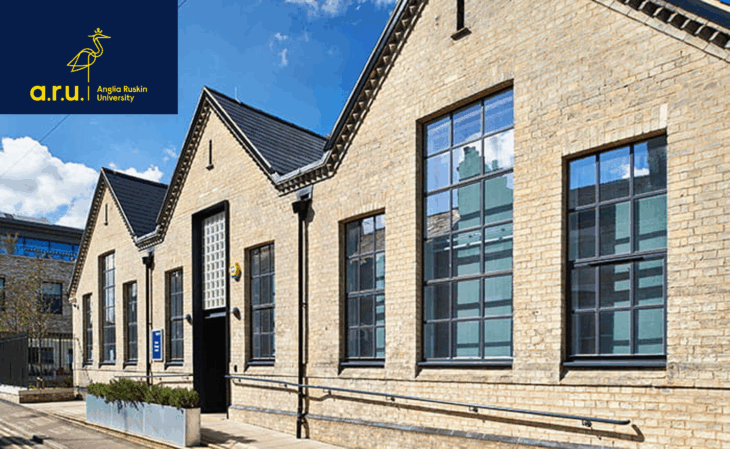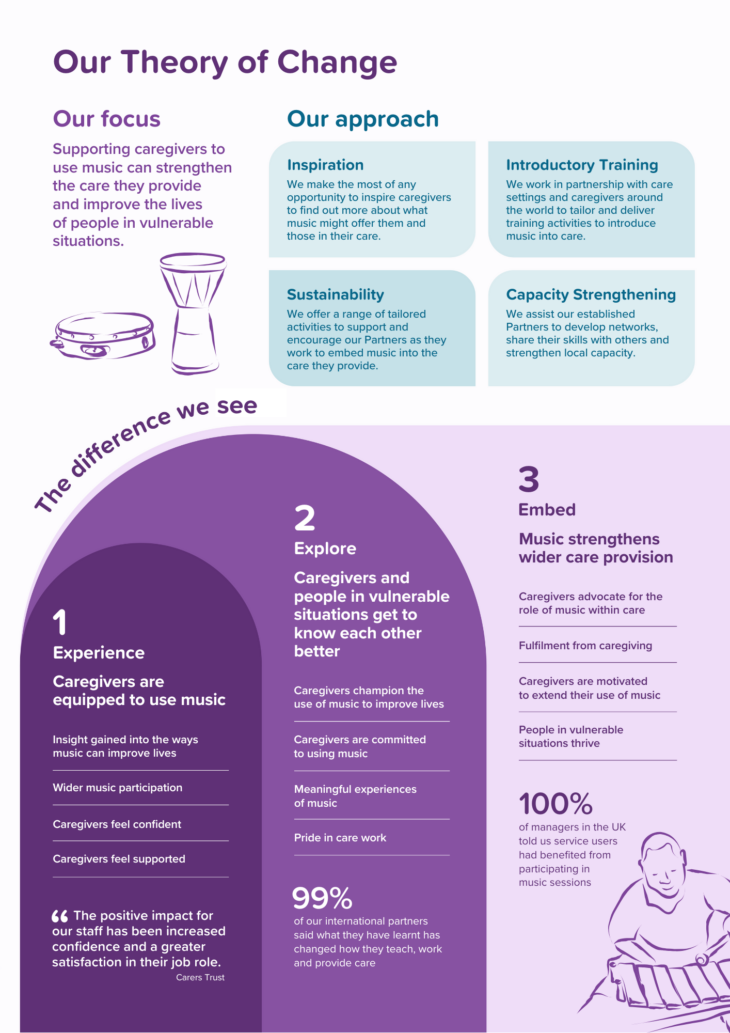Sustainability and Ecological Practices
United Kingdom
- Caregivers
- Activities
- Strategy

The word “sustainability” is used in many different contexts and means different things for different people, so I was keen to start by ascertaining a shared starting point with the trainees, before digging deeper into how Music as Therapy International thinks about this term. The charity’s interpretation is, unsurprisingly, rooted in international development practice and aligns quite nicely with the United Nations’ definition of sustainability as “…meeting the needs of the present without compromising the ability of future generations to meet their own needs.” (1987). Be warned though! This definition has been vastly expanded upon with the United Nations Sustainable Development Goals. There are 17 Sustainable Development Goals and these examine sustainable development, a sustainable world, a sustainable future… it’s easy to find yourself lost in a quagmire of different understandings of what “sustainability” means.
So re-focusing on how Music as Therapy International thinks about “sustainability”: We do so in relation to the lasting impact of our work, which can be sustained by participating practitioners in different countries and care contexts. Time and again over the past 30 years we have seen how our activities and our approach – not to mention the incredible dedication of our partners worldwide – can lead to the sustainable outcomes we outline in our Theory of Change.

But there are, of course, threats to sustainability in our work. Back in 2018 we worked with a range of Partners across the UK to find out what aspects of their learning from our introductory training had proven sustainable and what it was that interrupted their subsequent music session or made it difficult to ‘keep going’ using music in their care practice over the 2 years since we delivered their original training. You can read more here but the majority of challenges to sustainable practice related to the “eco-system” in which our partners were working (e.g. disruptions, a lack of time for planning or evaluation, unhelpful colleagues, staff rotas etc).

This is exactly why the charity’s interpretation of the term “ecological practice” relates to the relationship between our activities and the different eco-systems we (or our partners worldwide) might be working within. Makeda’s recent blog, explored the role of partnership when we are learning about the eco-system around a new project, something we are thinking hard about at the moment as we prepare for a new introductory training project in Kenya later this year.
My presentation at Anglia Ruskin University gave me the opportunity to talk through all the different things we seek to find out to strengthen our understanding of any new context. Some people might describe this as exploring a local “culture”, but for me this word is often used very broadly, perhaps relating to the traditions or norms of an entire ethnic group or nation. I have found this reductive: From the earliest days of my work with Music as Therapy International I realised traditions and norms may be country-wide, but are often locality specific. Yes, I need an awareness of country norms, but I also need to find out about the norms (the culture) of the geographical region I might be working within in any country; or even the norms of the village in a region where we are working… Or more specifically, the care context in the village in the region of the country… Or actually, how things are being done on the third floor of the care context in the village in the region of the country… And if you are thinking about culture or eco-system in this way, it is worth being mindful of how those of us in the UK might be assumptive about our cultural understanding in our own country! We have found that we need to try to understand the eco-system we are working in in similar ways, whether we are delivering a project in a new country or in a new care setting within a country we think we know well.
My thanks to Claire Molyneux (Deputy Head of School for Therapies) for this opportunity, to Laura Hubbard for her assistance on the day and to the trainees for their engagement with the talk.
